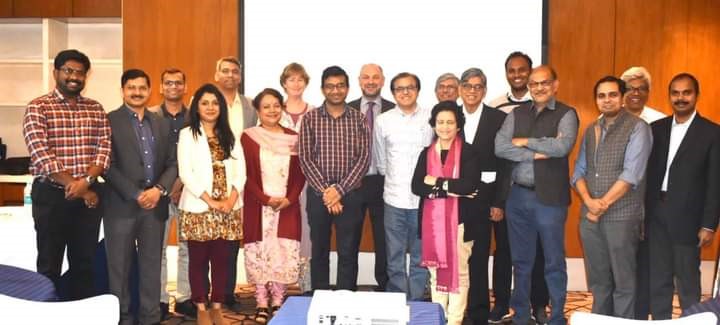History
In 2004 India began its adventure with Cochrane as a branch of the Australasian Cochrane Centre. In 2008 we became an independent Cochrane Centre and Network (South Asian Cochrane Centre), later called Cochrane South Asia.
At the exploratory meeting held in Goa in 2004 December, the South Asian Cochrane Network was envisaged to include a Coordinating Centre with Network sites in India including all institutions where there were Cochrane Editors, who served as site coordinators and were also members of our steering group (All India Institute of Medical Sciences, New Delhi- Prof Kameshwar Prasad; Manipal Academy of Higher Education- Prof. Sreekumaran Nair and Dr H vinodh Bhat; Post-graduate Institute of Medical Education and Research, Chandigarh- Prof. Meenu Singh and Prof. Joseph Mathew; The Nerve Centre, Chennai- Prof R. Sreedharan; and one institution where there were systematic review authors (Tata Memorial Hospital, Mumbai- Prof. Rajiv Sarin). We also had Network Sites in Sri Lanka (University of Kelaniya- Prof. Chrishantha Abeysena), Bangladesh (Centre for Health, Population and Development, Independent University, Dhaka-Dr. Omar Rahman); and Pakistan (Aga Khan University, Karachi- Prof. Zulfikar Bhutta).
In 2020 a planned re-organization with potential partners and the Cochrane leadership meeting was held in N Delhi, following which in July 2020 we have become Cochrane India. After few days of deliberation we decided to start the Cochrane India network with common vision and mission. After an application process and signing MOUs with Cochrane, we (Cochrane India) are a network of 9 partner institution (Cochrane Affiliate Centers). Drs Meenu Singh and Anju Sinha from PGIMR Chandigarh and ICMR New Delhi were chosen as the first co-chairs for Cochrane India.

We plan a formal inaugural function on October 26th with the ICMR director general Dr Balram Bharghava and the WHO chief scientific advisor Dr Soumya Swaminathan as the Chief Guests.
Our Vision is that all decisions regarding health care in India should be informed by reliable and relevant evidence.

